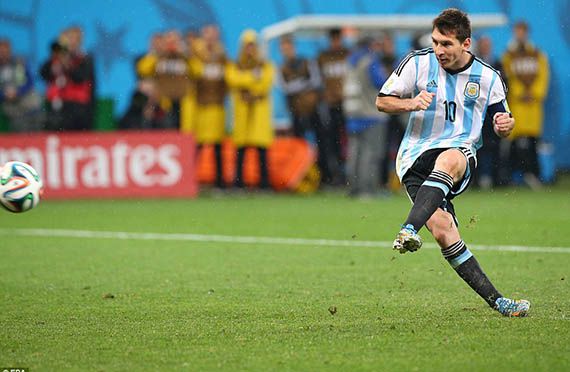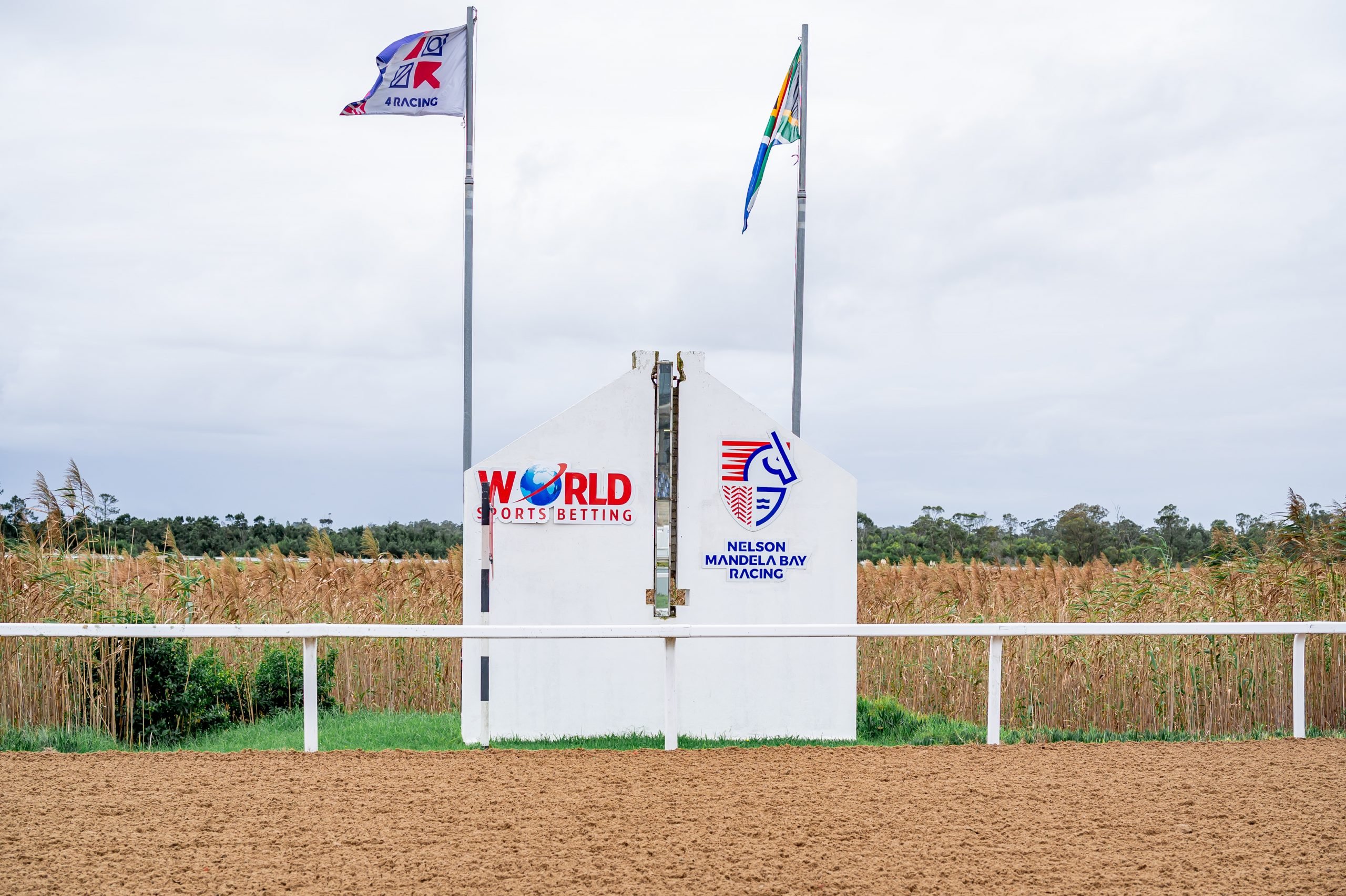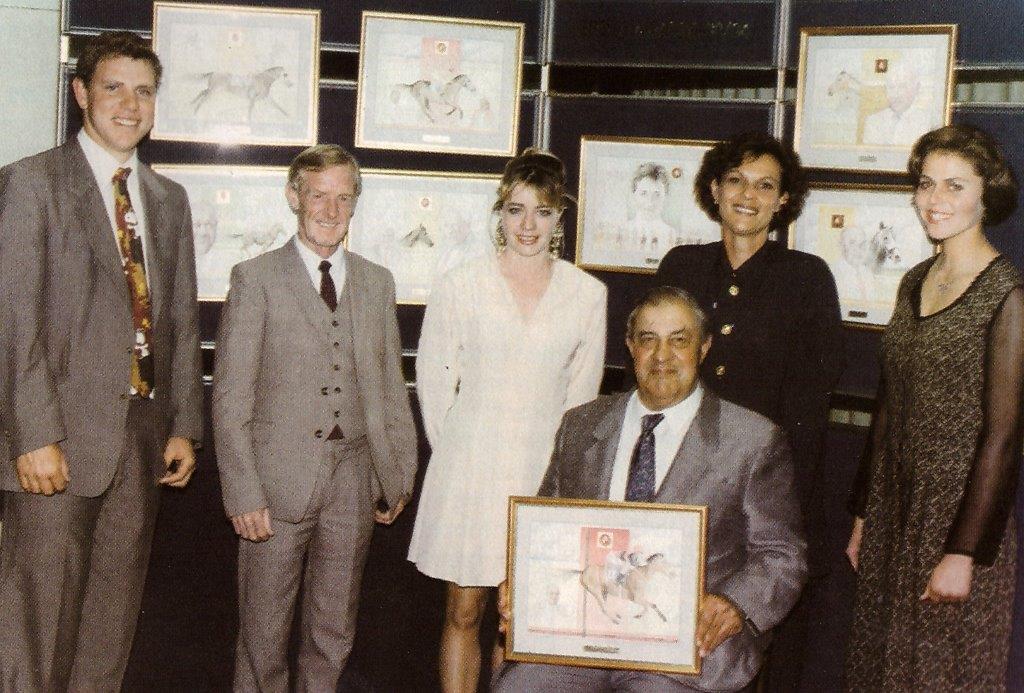Germany v Argentina
Sunday 13 July – Maracana (21:00)
5/4 draw 22/10 23/10
It’s only fitting that one of the best World Cups in history will end with a clash between two giants, as Germany and Argentina will face off in the 2014 final in the Maracana Stadium, Rio de Janeiro. Germany will make a record eighth appearance in a World Cup final, while Argentina make their fifth showing on the biggest stage of them all. It seems like destiny for these two great football nations after competing against each other in two previous finals, winning one each. Diego Maradona led Argentina to a second world title with a 3-2 win over Germany in the 1986 final. Germany avenged the loss four years later with a 1-0 win for a third World Cup victory. Neither has won the tournament since.
![]() In what has been a truly outstanding tournament thus far, the World Cup finally welcomed its first genuinely great side on Tuesday night when Germany overcame hosts Brazil 7-1 at the Estadio Mineirao in Belo Horizonte. Although Joachim Low’s side had already been touted as comfortable favourites—following the injury to Neymar and the suspension of Thiago Silva—nobody could have predicted just how strong the German victory would have been. In amongst the heartbreak of an entire nation, it was Miroslav Klose who well and truly rubbed it in with a solitary goal to put himself above Ronaldo in the top World Cup goalscorers of all time. With Germany’s second goal in the 23rd minute, Klose picked up his 16th World Cup goal and set his nation on course for a place in the final. Six minutes after the towering striker’s goal, Germany had scored another three—a clinical moment to break away from their opponents and confirm their spot in the final. Klose looks set to make another start and will be looking to win the trophy that escaped him in the 2002 final against Brazil. Although Low may not be the most popular manager at this World Cup, he has certainly proved himself to be one of the most astute and brilliant coaches throughout it. Brazil may have looked far from their best in the semi-finals through injured personnel and the pressure of a nation on their shoulders, but it was Low’s tactics that ensured that Germany never gave them a moment’s rest. Low stuck with his 4-2-3-1 formation—the very one that overcame France just days beforehand—but also made sure that Muller and Klose put as much pressure on Brazil’s back line as possible. This was also evident from just how far Khedira played up the park. The central midfielder usually sits deep in Germany’s midfield but was instead asked to play a more physical role against Brazil’s deep-lying midfield and defensive players. In Manuel Neuer Germany have arguably the best goalkeeper in the world. The defence in front of him has improved vastly since Low took captain Philip Lahm out of midfield and put him back in his favoured position as right back. Mats Hummels has been a steady anchor in central defence and also a significant goal threat in set pieces. However, it is in midfield where Germany steamroll teams when at their best. A unit without weakness that plays together as a well-oiled machine. Bastian Schweinsteiger and Sami Khedira shore things up defensively while Toni Kroos and Mesut Ozil direct most of the attacks going forward with Muller playing in-between the lines. Germany’s road to the final started off with a bang, beating Portugal 4-0 through a hat-trick by Muller and a header by Hummels. Germany’s second group match against Ghana was probably one of the most exciting games of this World Cup and the 2-2 draw could have gone either way. After a goalless first half, Mario Gotze opened the score-line for Germany but Ghana then scored twice before Klose equalized. In their last group match, the world’s number two ranked side beat the USA 1-0 through Muller’s fourth goal of the tournament. Arguably, Germany’s worst performance in Brazil came in the last-16 against Algeria and they had to go into extra-time after a goalless 90 minutes. However, goals by Andre Schurrle and Ozil proved enough to edge a 2-1 win over the Africans. In the quarter-final, France – one of the in-form teams of the tournament – waited for an all-European clash. But Germany went ahead early through Hummels’ second goal from a set-piece. Despite a couple of half-chances, France never came back into the game, which was controlled by the Germans. Should they triumph at the Maracana, Germany will make history as the first ever European side to win a World Cup on Latin American soil. Despite their annihilation of the hosts, native support in Brazil is likely to be behind Die Mannschaft in favour of Brazil’s nearest and bitterest rivals. The Germans are now the highest scorers in World Cup history with 223 goals, overtaking Brazil. They have scored 17 goals in the run up to the final, nine goals more than Argentina.
In what has been a truly outstanding tournament thus far, the World Cup finally welcomed its first genuinely great side on Tuesday night when Germany overcame hosts Brazil 7-1 at the Estadio Mineirao in Belo Horizonte. Although Joachim Low’s side had already been touted as comfortable favourites—following the injury to Neymar and the suspension of Thiago Silva—nobody could have predicted just how strong the German victory would have been. In amongst the heartbreak of an entire nation, it was Miroslav Klose who well and truly rubbed it in with a solitary goal to put himself above Ronaldo in the top World Cup goalscorers of all time. With Germany’s second goal in the 23rd minute, Klose picked up his 16th World Cup goal and set his nation on course for a place in the final. Six minutes after the towering striker’s goal, Germany had scored another three—a clinical moment to break away from their opponents and confirm their spot in the final. Klose looks set to make another start and will be looking to win the trophy that escaped him in the 2002 final against Brazil. Although Low may not be the most popular manager at this World Cup, he has certainly proved himself to be one of the most astute and brilliant coaches throughout it. Brazil may have looked far from their best in the semi-finals through injured personnel and the pressure of a nation on their shoulders, but it was Low’s tactics that ensured that Germany never gave them a moment’s rest. Low stuck with his 4-2-3-1 formation—the very one that overcame France just days beforehand—but also made sure that Muller and Klose put as much pressure on Brazil’s back line as possible. This was also evident from just how far Khedira played up the park. The central midfielder usually sits deep in Germany’s midfield but was instead asked to play a more physical role against Brazil’s deep-lying midfield and defensive players. In Manuel Neuer Germany have arguably the best goalkeeper in the world. The defence in front of him has improved vastly since Low took captain Philip Lahm out of midfield and put him back in his favoured position as right back. Mats Hummels has been a steady anchor in central defence and also a significant goal threat in set pieces. However, it is in midfield where Germany steamroll teams when at their best. A unit without weakness that plays together as a well-oiled machine. Bastian Schweinsteiger and Sami Khedira shore things up defensively while Toni Kroos and Mesut Ozil direct most of the attacks going forward with Muller playing in-between the lines. Germany’s road to the final started off with a bang, beating Portugal 4-0 through a hat-trick by Muller and a header by Hummels. Germany’s second group match against Ghana was probably one of the most exciting games of this World Cup and the 2-2 draw could have gone either way. After a goalless first half, Mario Gotze opened the score-line for Germany but Ghana then scored twice before Klose equalized. In their last group match, the world’s number two ranked side beat the USA 1-0 through Muller’s fourth goal of the tournament. Arguably, Germany’s worst performance in Brazil came in the last-16 against Algeria and they had to go into extra-time after a goalless 90 minutes. However, goals by Andre Schurrle and Ozil proved enough to edge a 2-1 win over the Africans. In the quarter-final, France – one of the in-form teams of the tournament – waited for an all-European clash. But Germany went ahead early through Hummels’ second goal from a set-piece. Despite a couple of half-chances, France never came back into the game, which was controlled by the Germans. Should they triumph at the Maracana, Germany will make history as the first ever European side to win a World Cup on Latin American soil. Despite their annihilation of the hosts, native support in Brazil is likely to be behind Die Mannschaft in favour of Brazil’s nearest and bitterest rivals. The Germans are now the highest scorers in World Cup history with 223 goals, overtaking Brazil. They have scored 17 goals in the run up to the final, nine goals more than Argentina.
After a 0-0 draw through normal and extra time, it was Argentina who triumphed over Netherlands on penalties (4-2), to progress to their first World Cup final since 1990. There were very few chances in a cagey match between two sides unwilling to commit too many men forward by risking getting caught on the break. There’s really little doubt about the fact that Messi will earn an undeniably important addition to his all-time resume with a win in Sunday’s final. But despite Argentina’s victories, he’s been kept under wraps as of late. In the group stage, Messi was a force with four goals in three matches. The first knockout affair included his crucial assist on Angel di Maria’s winner against Switzerland, but lacklustre performances have ensued. All eyes will be on Messi who will be playing in his first World Cup final. Argentines will be hoping that the greatest player of his generation will be able to summon the spirit of Diego Maradona by leading them to victory on the soil of their old foes. Argentina’s journey started with three solid group stage performances, gaining maximum points thanks to the sensational Messi after wins against Bosnia and Herzegovina, Iran and Nigeria. In the knockout stages they edged past Switzerland and Belgium winning both games 1-0. Javier Mascherano was a player who came to the fore in the semi-finals. He expertly patrolled the area in front of the defence, breaking up play with well-timed tackles and—a couple of misplaced passes aside—distributing crisply into midfield. His performance was both intelligent and tenacious and at times a simple interception was sufficient, while on other occasions a strong tackle was needed. Whatever was required, Mascherano provided it. He will be vital to Argentina’s hopes in the final against a Germany side whose strong midfield runners played such a key part in their annihilation of Brazil. Di Maria, who incurred injury during the quarter-final against Belgium, could be ready to start against Germany in what will be a major boost for La Albiceleste. Di Maria’s pace and ability to take on defenders on the wing was sorely missed against the Netherlands, when his team struggled to find ways forward. Hailed as an offensive-minded side, Messi and Co. have surrendered just three goals in six games, somewhat thanks to a rock-solid formation but also because of the efforts put on by goalkeeper Sergio Romero. The team has now gone 330 minutes without conceding a goal in the knockout rounds — including two extra time periods. Romero’s form was on display the entire time with the Dutch, but most importantly in the penalty shootout, saving two penalties to win the match for the South Americans. He will need to be at the top of his game to deal with the inevitable German flurry of opportunities.
This final can be described as the best player in the world going up against the ultimate team machine, on the world’s biggest stage. However, Argentina have shown that they can play just as tactically as the Germans, eking out narrow victories and doing whatever is needed to win. After an underwhelming match in the semi-final, Lionel Messi will be eager to make his presence felt by driving his team to glory and putting his name down as arguably the greatest player to have ever played the game. Unlike Brazil, Argentina will take the game to Germany. Defensively Argentina have proved their critics wrong. The Germans are capable of breaking down any defence but have blown hot and cold offensively through the tournament. With Argentina’s tenacity and their little magician, the World Cup is tipped to go the way of the Argentineans with a victory in normal time.









